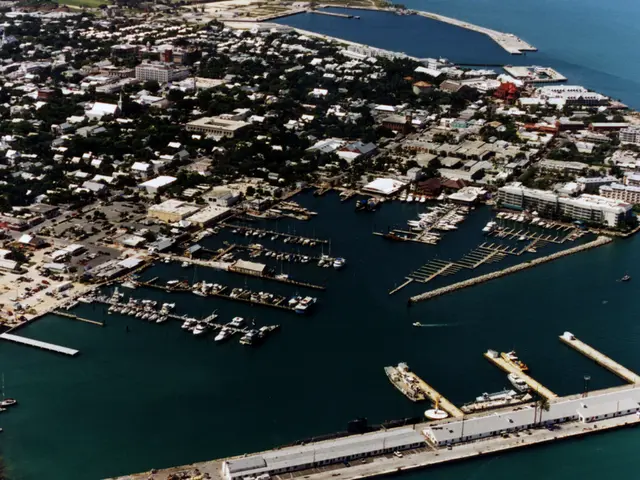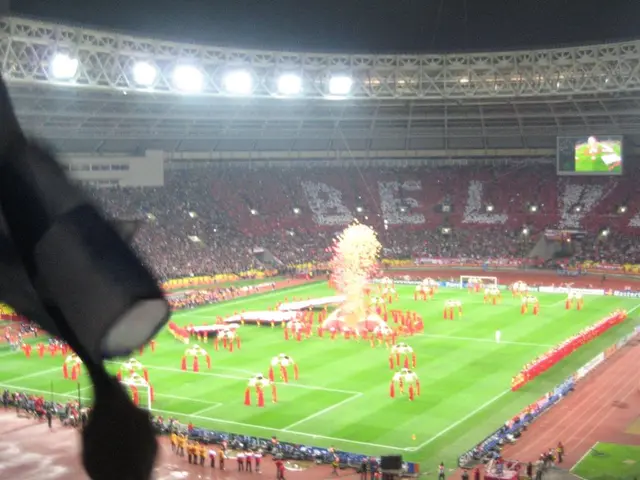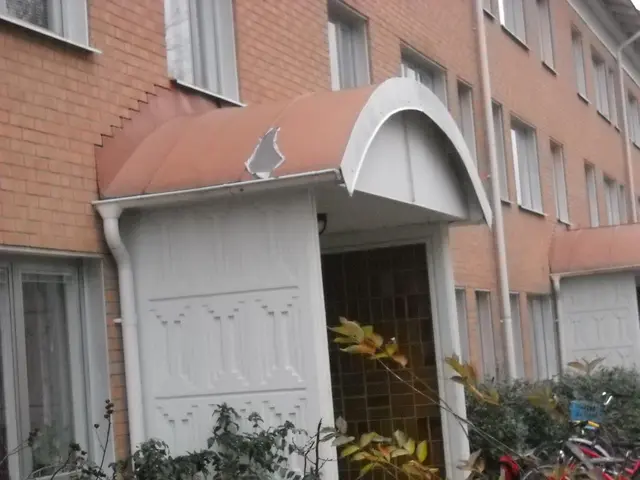Israel seeks control over Gaza City: Exploring potential repercussions
In a troubling turn of events, horrifying propaganda videos of two hostages, Rom Braslavski (21) and Evyatar David (24), have been published by Hamas and the Palestinian Islamic Jihad (PIJ). The hostages are believed to be held in Gaza, and their lives are at risk as military operations intensify.
The escalating conflict in the Gaza Strip has sparked strong concern from the international community. Military officials have cautioned against advancing deep into targeted areas, as it could endanger the hostages and potentially lead to their death. This warning comes as the EU Commission President, Ursula von der Leyen, has called on Israel to question a further military escalation in the Gaza Strip.
The international criticism of Israel's actions in the Gaza Strip has significantly increased, with some countries considering imposing sanctions. The German government, for instance, has taken concrete measures against Israel for the first time, halting exports of weapons that could be used in the Gaza war. British Prime Minister Keir Starmer has urged Israel's government to reconsider its decision to escalate, stating that it will not contribute to the end of the conflict or the release of hostages.
The United Nations, through officials like High Commissioner for Human Rights Volker Turk, has stated that the planned military takeover of Gaza City must be "immediately halted" as it will lead to more killing, massive forced displacement, and destruction, violating international law and undermining efforts toward a two-State solution. European Union leaders, including EU Council President Antonio Costa, have condemned the operation, emphasizing that it worsens the humanitarian crisis and violates agreements and international law.
UN Security Council representatives and humanitarian officials have warned that Israel’s plan to take full control of Gaza City and displace around 800,000 civilians risks igniting further regional instability and humanitarian disaster. They stress the importance of protecting civilians, releasing hostages unconditionally, and allowing humanitarian aid access.
Within Israel, there is a notable rift. The IDF Chief of General Staff has expressed concerns that the expanded operation could endanger the hostages’ lives and overstretch military resources. Meanwhile, diplomatic efforts led by Egypt, Qatar, the US, and others are ongoing to negotiate ceasefires and potentially comprehensive deals to end hostilities.
In the midst of this, Israeli Prime Minister Netanyahu finds himself in a dilemma regarding the future of the Gaza Strip. His far-right coalition partners demand the occupation of the entire area and the expulsion of Palestinians, while moderate members of the government and opposition parties vehemently reject this. A further split within the political camps could be the result.
As the situation in Gaza remains tense, the international community continues to watch closely, with hopes for a peaceful resolution that prioritizes the safety and well-being of all civilians involved. Behind-the-scenes diplomatic negotiations continue to seek a resolution, with the UN and EU playing key roles in urging a halt to the offensive and advocating for humanitarian concerns.
Amidst heightened concern and international criticism, the United Nations and European Union have called for an immediate halt to Israel's operation in Gaza City, citing potential risks to hostages,violations of international law, and the worsening of humanitarian crisis. Following this, the German government has implemented sanctions by halting exports of weapons that could be used in the ongoing war-and-conflicts. The British Prime Minister, Keir Starmer, has emphasized Israel's need to reconsider its actions in light of the general-news that such escalation would not contribute to the release of hostages or the end of the conflict.








